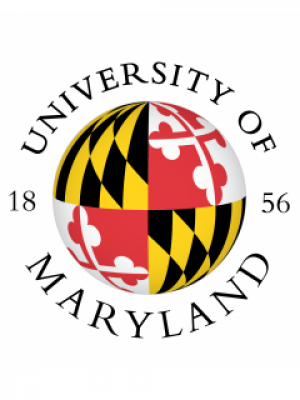Individuals pursue learning at academic and professional institutions for a variety of reasons, and each person brings with them a diverse set of knowledge, experiences, and interests that influence their specific goals and motivations as well as likes and dislikes. As such, I believe my role as an instructor is to encourage and reinforce students to: (1) think critically, draw reasoned inferences, and identify important/interesting questions about topics, events, or phenomena, (2) apply their knowledge and skills to resolve questions or issues of personal relevance, and (3) locate and make effective use of resources, opportunities, and experiences that enable them to continue learning and achieving beyond their formal education.
Grand, James
Bio
Dr. James A. Grand (Ph.D., Michigan State University) is an Associate Professor in the Social, Decision, and Organizational Sciences program at the University of Maryland. His main research interests focus on the interplay of knowledge-building, decision-making, collaboration, and performance at the individual and team levels. A significant theme of his work lies in exploring and understanding the emergent processes underlying these mechanisms by theoretically, computationally, and experimentally investigating how the behaviors and cognitions of individuals create, change, and/or maintain dynamics at collective levels (i.e., teams, multi-team systems, organizations, etc.) over time. More specific topics in his research stream focus on how planning/project teams gather and share information, develop collective knowledge, and make decisions based on their shared understanding, and how action-oriented teams (i.e., medical teams, military teams, sports teams, etc.) coordinate, regulate, and adapt their behavioral and cognitive resources/efforts to produce team performance outcomes. Additionally, he conducts research on the interaction between information processing and situational factors in relation to personnel training and testing/assessment outcomes. He also has methodological interests in computational modeling, simulation of dynamic processes, and Bayesian statistics.
Please refer to Dr. Grand's personal website to learn more about his work and to check whether he is currently recruiting PhD advisees or undergraduate research assistants.
Degrees
Michigan State University; Psychology (Organizational), 2012 - PhD
Michigan State University; Psychology (Organizational), 2008 - MA
Auburn University; Psychology, 2006 - BA
Areas of Interest
Complex dynamic systems
Team functioning & cognition
Learning & decision-making
Personnel testing/selection
Computational modeling & simulation
Bayesian analytic methods
Research Topics
My core research philosophy is driven by the belief that the study of dynamic and emergent affective, behavioral, and cognitive processes through interdisciplinary approaches represents a valuable contribution to social science and practice. As an organizational psychologist by training, I am interested in evidence-based solutions that can meaningfully influence outcomes important to individuals, teams, and organizations. However, I believe that the best way to answer questions about "what" (e.g., “What should we do to improve team effectiveness?,” “What should we change to maximize learning in our training initiatives?,” etc.), is to explore questions about "how" and "why" people, groups, and systems respond, function, and operate over time and across system levels. Further, I believe that this pursuit necessitates incorporating new and innovative theoretical, methodological, and analytical approaches through interdisciplinary efforts between psychology and other fields of science (physics, computer science, engineering). Deciphering when, which, why, and how such diverse conceptual principles and empirical findings complement one another and offer insight into organizational research topics continues to be a significant inspiration and motivation in my investigative research efforts.


